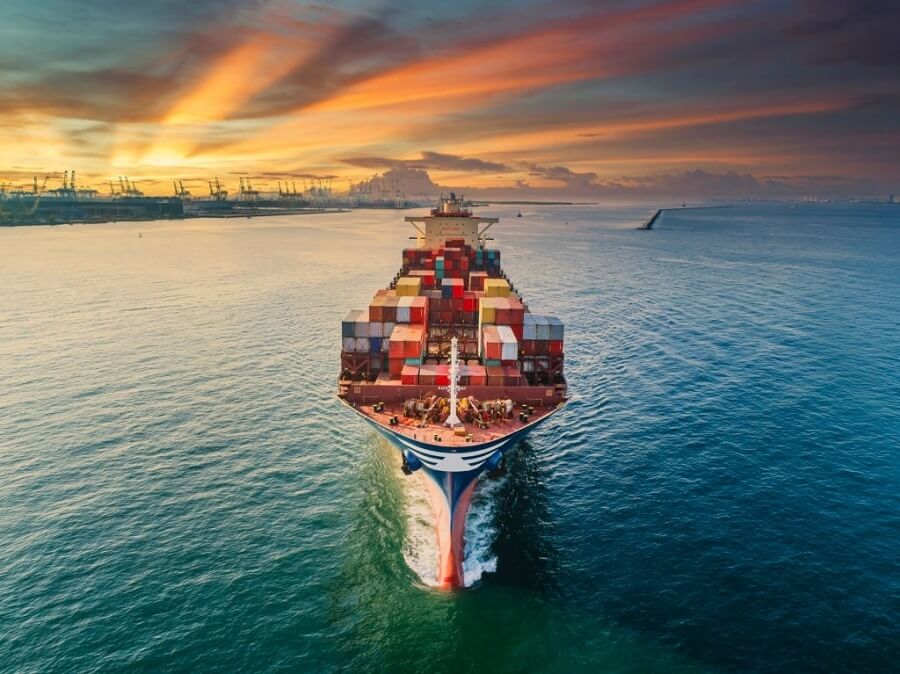On Thursday, June 5, within the framework of the METAVASEA project, we proudly hosted an insightful seminar titled “A People-Centered Decarbonization Concept Beyond Sea Level Boundaries” during #Posidonia2024. The event brought together brilliant leading maritime professionals, fostering discussions on innovative approaches to decarbonization within the maritime industry. Held in a full room at Posidonia Metropolitan Expo the seminar provided a platform for exploring sustainable solutions and advancing the industry’s commitment to reducing its environmental impact.
During the seminar a distinguished panel convened, with three out of the four panelists representing esteemed members of WISTA Hellas, underscoring the immense potential and expertise within the Association. The seminar emphasized the critical importance of collaborative efforts across the shipping cluster to effectively address the challenges of decarbonization, a principle that aligns closely with WISTA Hellas’ mission and activities.
We would like to extend our heartfelt gratitude to our Platinum Supporter, American Bureau of Shipping (ABS), and our esteemed panelists: Alexandra Chatzimichailoglou, CEO of Kyklades Maritime Corporation; Maria Koukou, HR Business Partner for SEEBA Zone at Bureau Veritas Hellas; Ariana Psomas, Global Marine Segment Director, New Build & Drydock Protective and Marine Coatings at PPG; and Aggeliki Tsolakidou, Head of Financial Department at Alexandroupolis Port Authority SA. We extend our sincere gratitude to Konstantinos Vouroutzis, Senior Project Manager Global Sustainability at ABS, for skillfully guiding the discussions during the seminar. His effective moderation ensured a productive exchange of ideas and insights among industry experts.
In the current challenging era, aiming reduction of the greenhouse gas emissions, Ms. Chatzimichailoglou commented that the “Shipping companies face a challenging era and work intensively towards meeting IMO’s target for a 20% emissions reduction (compared to 2008) by 2030 and achieve 0 emissions by 2050. They set their immediate, medium- and long-term goals depending on their mentality, vision, mission and type, age and trade of vessels. There is still much uncertainty around new hull and engine designs, carbon capture options, alternative fuels options, and availability without compromising health and safety. However, as she stated, “what is clear and certain is the importance of the human factor for the success of this long journey both in terms of shore-based personnel’s education, knowledge, talent and training as well as with respect to ship-based personnel’s well-being and safety on board.”
“Another certainty” she added is “the need for cooperation and collaboration across the industry which require strong international regulatory frameworks in place at an early stage to set the pace of energy transition.” The maritime industry aims to reduce carbon emissions in shipping for sustainability. The importance of people in driving successful transformations is crucial.
Maria Koukou said that “the maritime industry is committed to decarbonizing shipping for a more sustainable future, recognizing that people are key to successful transformations” adding that “As we chart a course towards greener practices, it is crucial to foster inclusive cultures, create engaging environments for a broader range of talent, offer flexible career paths that integrate new skills and ensure equal development opportunities for everyone”.
The maritime industry recognizes the need for carbon emissions reduction, and as Ariana Psomas emphasized, collaboration among stakeholders is crucial. “IMO’s GHG reduction strategy calls for a drastic reduction in carbon emissions. There is increasing importance of industry collaborations in fostering awareness and transparency on solutions that enable shipowners and operators to optimize their efficiency and meet these stringent decarbonization targets.” She stated that “at PPG, sustainability, environmental responsibility, and industry partnerships form the cornerstone of our purpose and culture. We firmly believe that collaboration among industry stakeholders is crucial for the industry’s progress. Our collaboration with Rightship with the Zero Harm program, along with the adoption of cross-industry sustainable best practices such as electrostatic application that reduces waste, overspray, and enhances workers’ health and safety conditions, exemplifies this commitment. PPG continues to work with customers and industry pioneers on sustainable and next-generation solutions that will contribute to a more sustainable marine future. Our efforts are aligned with the industry’s commitment to achieving a more sustainable future.”
All panelists underscored the significance of adopting a comprehensive approach to achieve decarbonization in the maritime sector.
Aggeliki Tsolakidou counselled the need for a holistic approach. “The journey to decarbonization requires a holistic approach that includes technological innovations, staff training, and collaboration with other entities. For the global Port Industry, this is a huge challenge but also a great opportunity for attracting sustainable investments in port infrastructure and creating a well-trained workforce.
In concluding, she stated that “in Greek Port Industry,” they “support that” their “MISSION IS NO EMISSIONS. It’s not just a phrase; it’s a commitment.”
We are grateful to everyone who participated in this event. Your support and engagement were crucial in making this seminar a truly impactful and inspiring gathering. Together, we are advancing towards a more sustainable future for the maritime industry.
Source: Hellenic Shipping News





